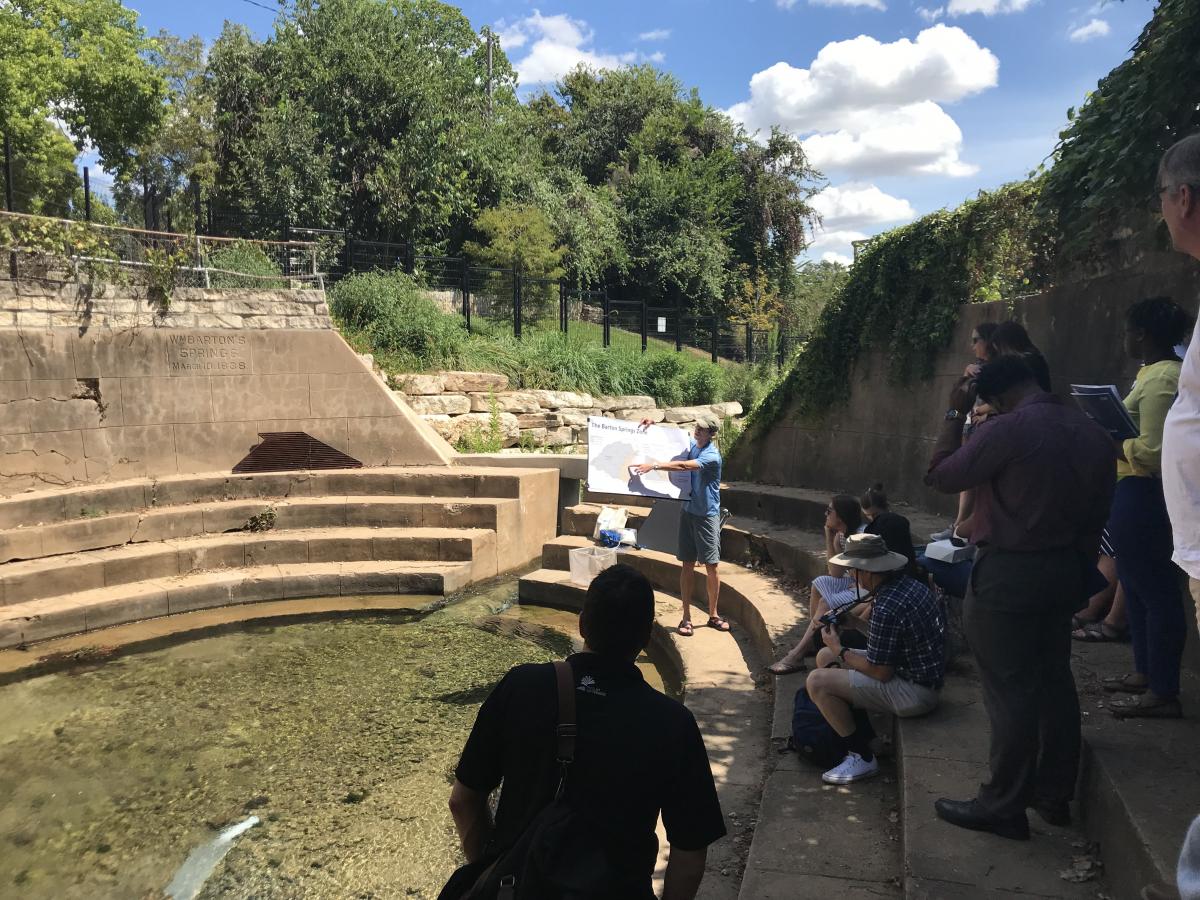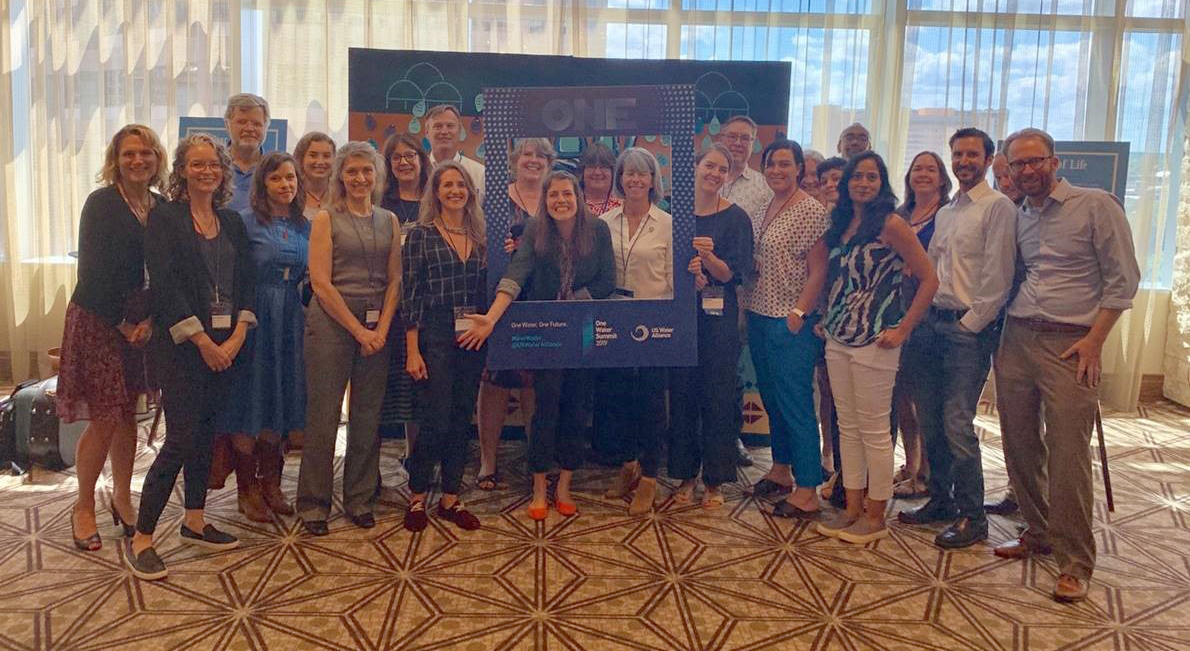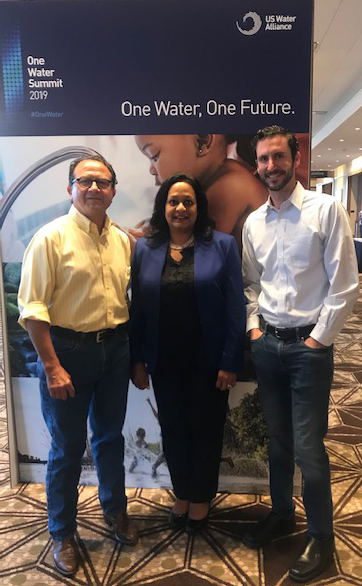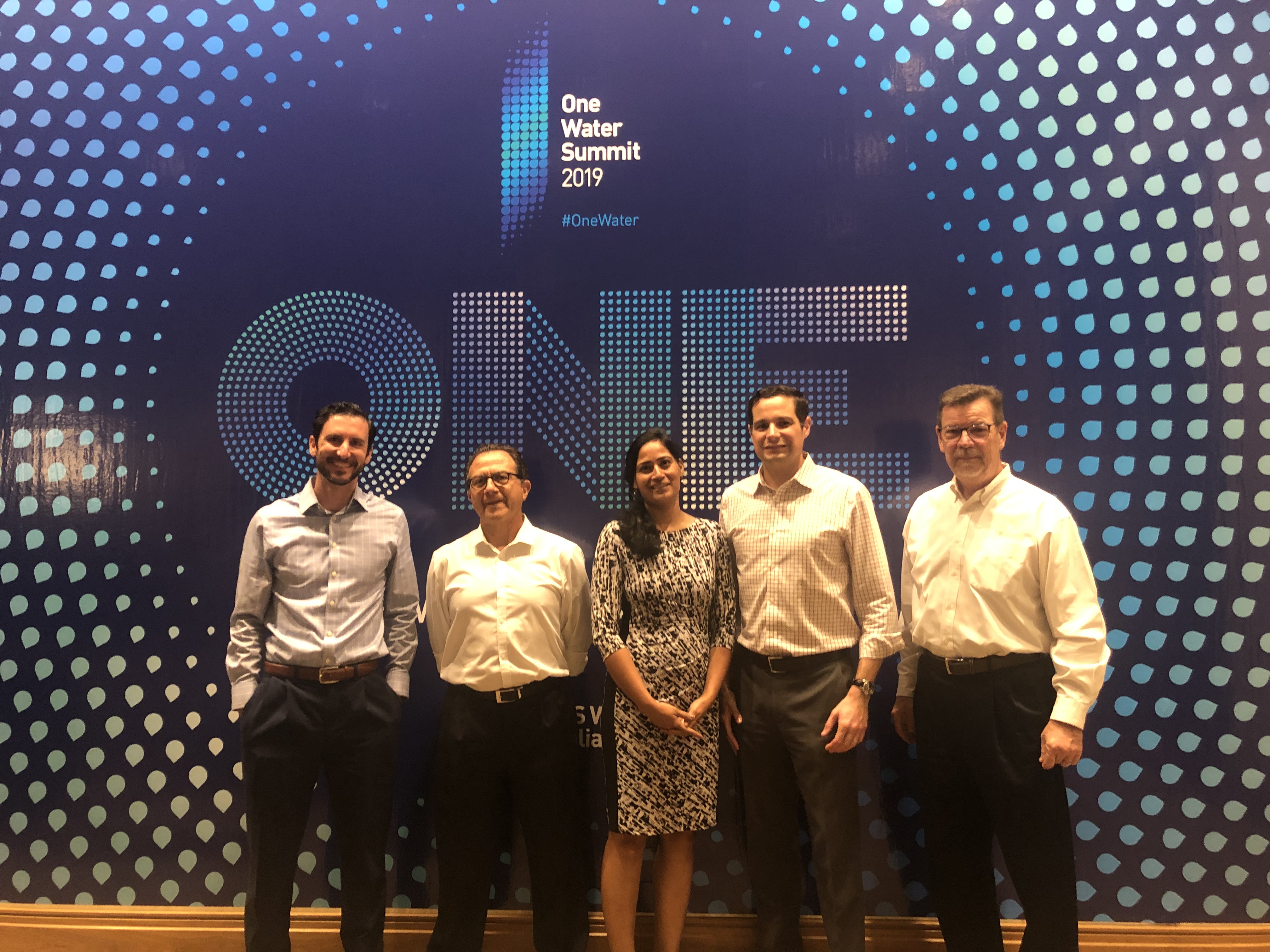Taking the One Water Concept Further
In an effort to help clients identify sustainable and resilient solutions for addressing tomorrow’s water challenges, a Freese and Nichols delegation joined the national conversation on the future of water supply and management.
Serving as a delegation at the One Water Summit last week in Austin, our team heard presentations from utilities from across the country who are implementing successful programs in utility consolidation, green infrastructure, drought/flood management, rural development, smart technology, climate resilience, reuse and infrastructure financing. Our delegation also attended breakout sessions with leaders from across the country, and expanded our network of practitioners and solutions that can be leveraged for the benefit of utility partners.
Here are some key takeaways from the national summit.
“If you want to go fast, go alone. If you want to go far, go together.”
 The challenges and recipe for success for One Water utilities are the same for One Water planners/engineers. Internally, have a champion, widespread buy-in and perseverance. Whether it is the public sector or private sector driving One Water, collaboration and public engagement is key, and you need to actively pull in people who have never traditionally been part of the conversation. An example at Freese and Nichols is the involvement of urban planners in water and wastewater planning and design, which supports ordinance development and land-use assumptions that could enhance water equity and sustainable solutions.
The challenges and recipe for success for One Water utilities are the same for One Water planners/engineers. Internally, have a champion, widespread buy-in and perseverance. Whether it is the public sector or private sector driving One Water, collaboration and public engagement is key, and you need to actively pull in people who have never traditionally been part of the conversation. An example at Freese and Nichols is the involvement of urban planners in water and wastewater planning and design, which supports ordinance development and land-use assumptions that could enhance water equity and sustainable solutions.
The Importance of Customer Service
Another common thread between One Water utilities and One Water planners/engineers is the need to adapt to changing customer expectations. In an age in which you can order a pizza on your phone, see when it goes into the oven and gets put in the delivery car, water utility customers are increasingly expecting service that solutions like smart meters can provide.
Not Just Traditional Supplies Anymore
In the same way climate change began as a distant concern now embraced by many, the One Water concept is something all utilities have already begun to embrace. Most clients in Texas are excited about the possibility of applying One Water concept to their utility management with an integrated approach to managing supplies rather than a linear way of thinking about supplies.
Sustainable Solutions
From green ideas to green infrastructure to green technology, a green way of thinking is the path forward. Sustainability is more than just a buzzword.
Human Relationships As Infrastructure
This comment serves as a reminder that all we do is for the benefit of our fellow citizens and communities. As we focus increasingly on technical expertise and value-minded projects, let’s not forget to consider the human factor in all we do.
 The Freese and Nichols delegation with other Texas delegates. Meet our delegation here. Below, Jorge Arroyo and Adam Conner met US Water Alliance CEO Radhika Fox.
The Freese and Nichols delegation with other Texas delegates. Meet our delegation here. Below, Jorge Arroyo and Adam Conner met US Water Alliance CEO Radhika Fox.
Our Commitment to Action
At the end of the summit, our delegation announced a commitment to action. Read it below.
Commitment to Action: Continue to embrace sustainable engineering practices and incorporate One Water principles into state, regional and local planning efforts.
The Freese and Nichols delegation commits to:
 Continue to promote low-impact development and apply the Institute for Sustainable Infrastructure’s (ISI) Envision criteria and performance objectives. The following will be accomplished before the next Summit:
Continue to promote low-impact development and apply the Institute for Sustainable Infrastructure’s (ISI) Envision criteria and performance objectives. The following will be accomplished before the next Summit:
- Assist one utility in earning the Envision rating
- Encourage four delegation leaders to earn ISI’s Environmental Sustainability Program certification
- Teach 20 college students how to apply the Envision rating program to their senior design projects
- Advocate incorporation of One Water principles into regional water plans and the State Flood Plan process of Texas. Freese and Nichols serves as the planning consultant to eight of the sixteen regional planning groups, planning for 70 percent of the state’s total population. By the next Summit, these groups will have submitted plans to the State which contain the largest proportion of alternative water supply strategies since the legislature established the bottom-up regional planning approach in 1997.
- Encourage the One Water approach to the hundreds of utilities with which Freese and Nichols partners. Between now and the next Summit, our delegation commits to:
- Facilitate four workshops focusing on One Water and sustainability
- Expand water reuse in Texas, North Carolina, Georgia, Florida, Oklahoma and Louisiana by 1 million gallons per day
- Grow its groundwater practice to successfully implement one new desalination project and one new ASR project
- Design the restoration of 5,000 linear feet of waterway
- Continue to engage communities in the development of resiliency plans



